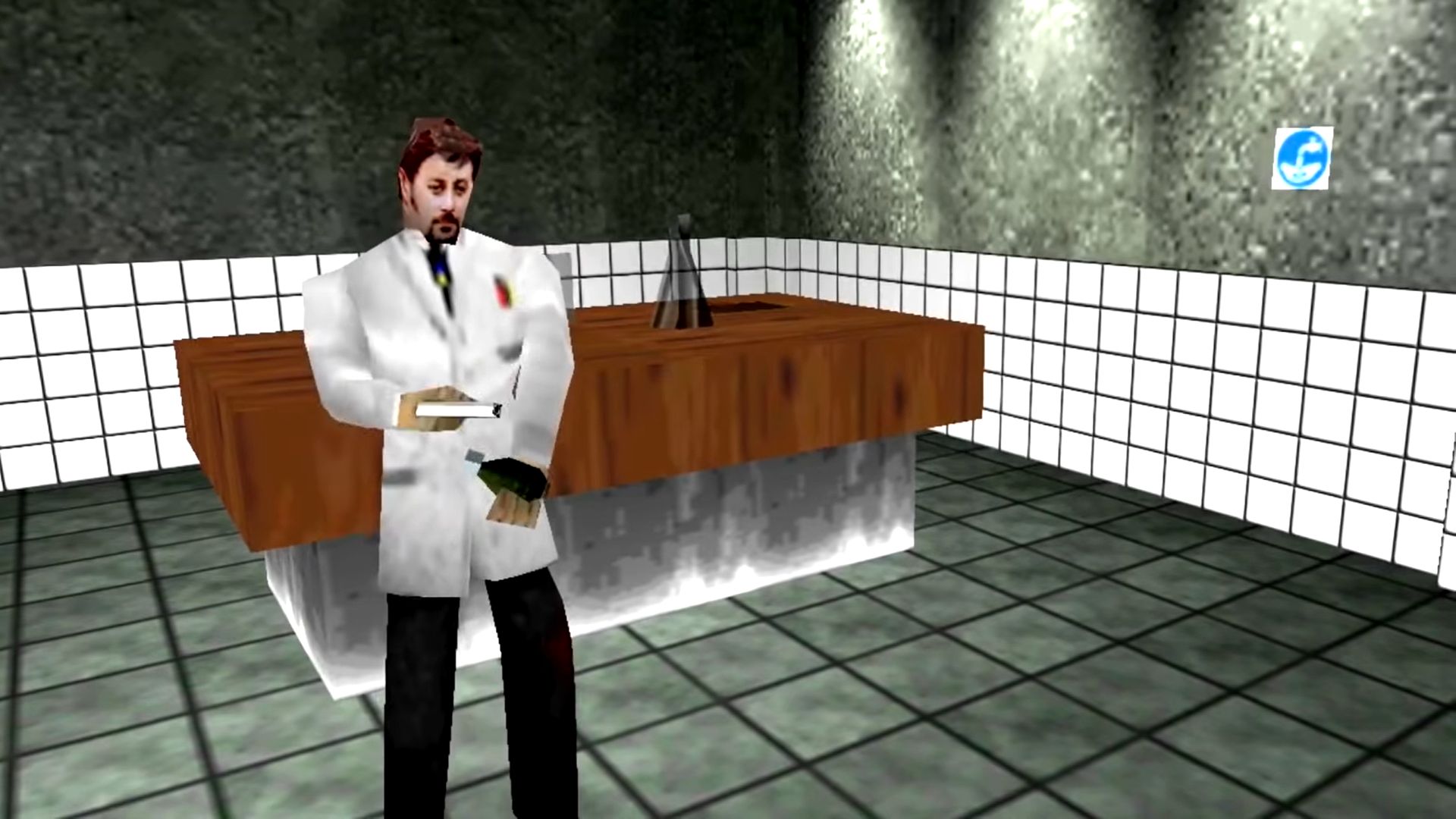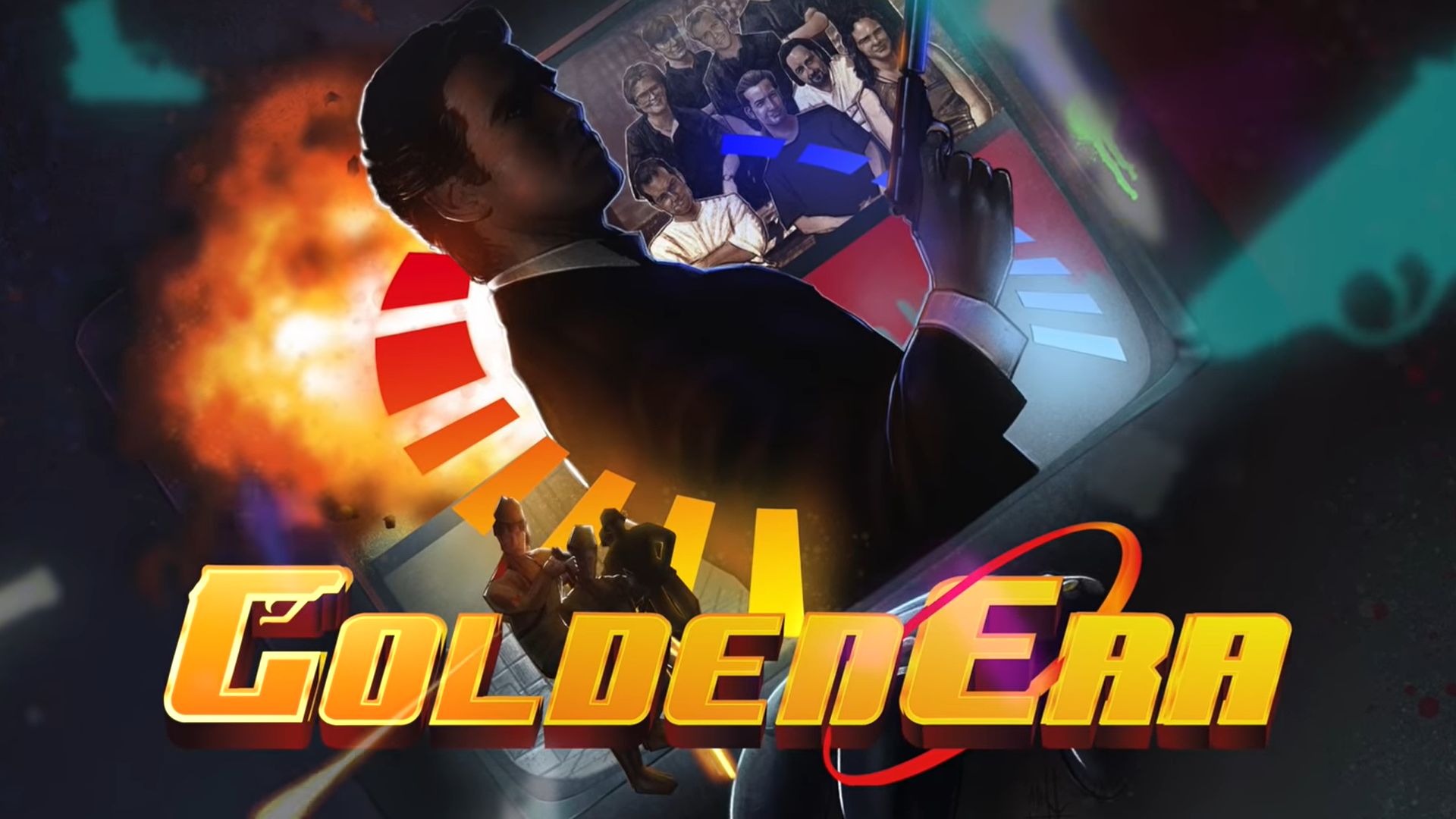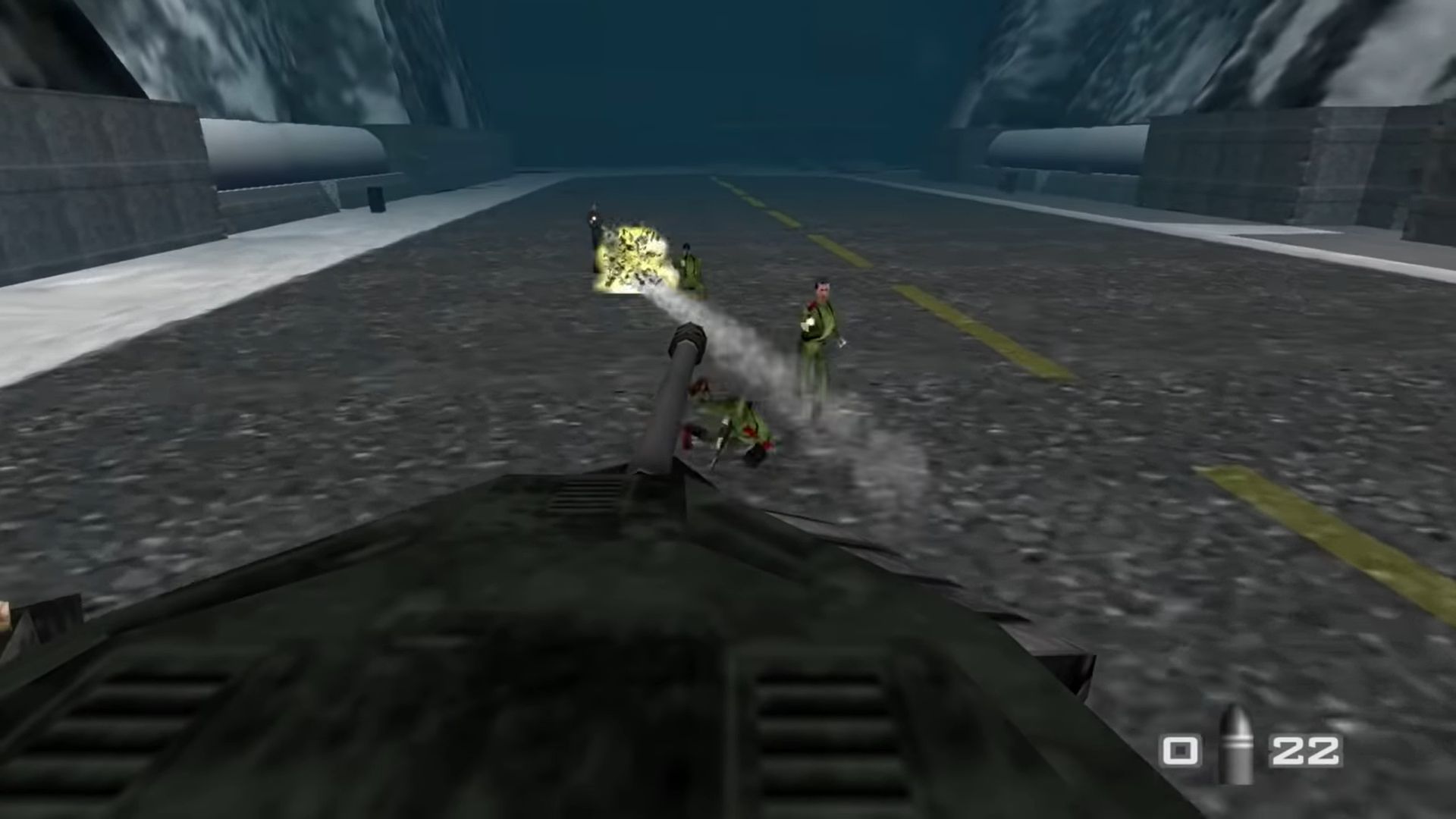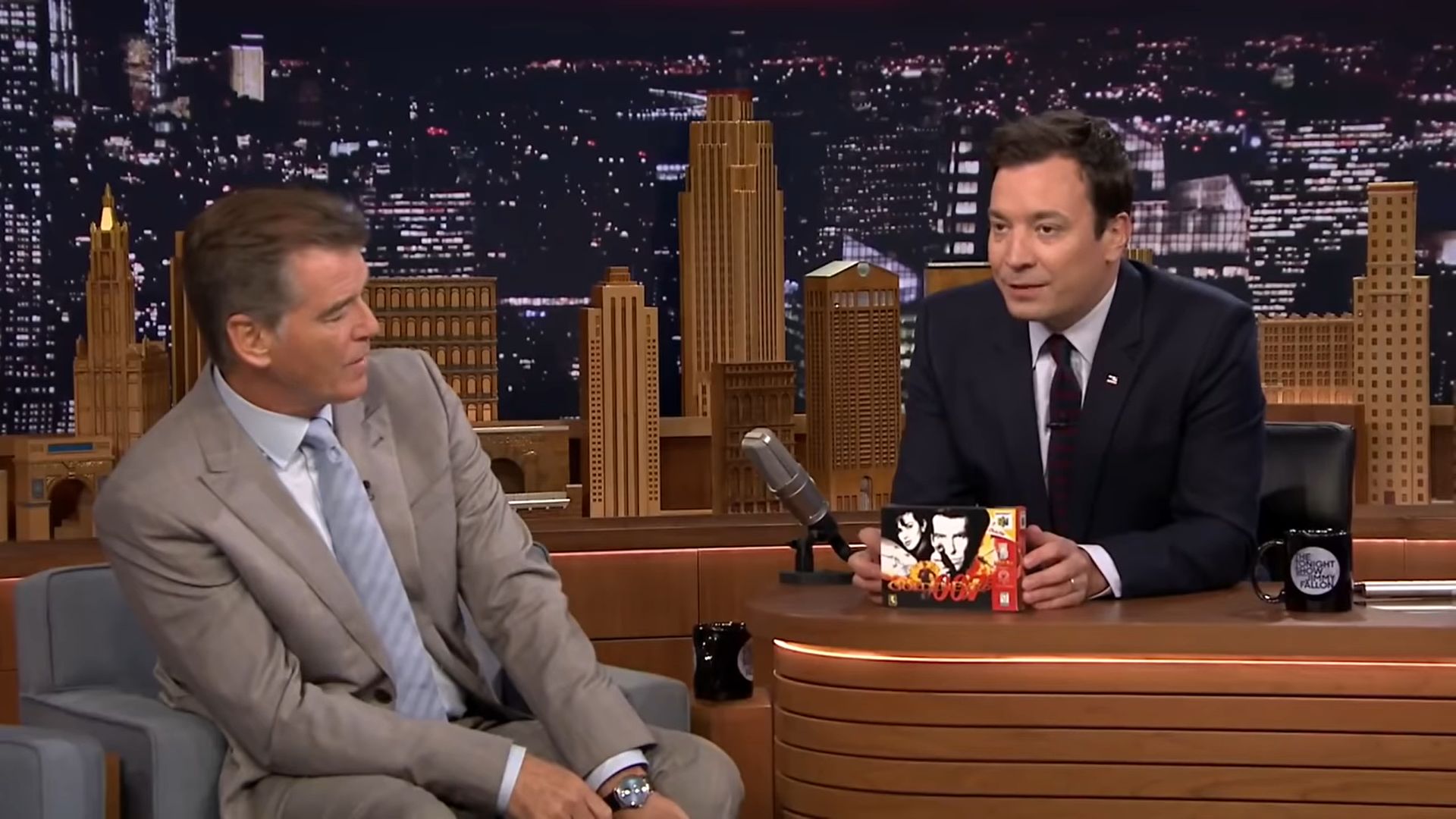Goldeneye is 25 years old today: 'None of us knew what we were doing'
Shine on

Your mum has given you a quid, you’ve gone round to the local newsagents, picked up a few penny sweets – well, a hundred to be precise – and you’ve set off to your best mate’s house down the street. In your other pocket is your N64 controller. Next thing you know, you’re shoulder to shoulder, elbow to elbow, killing faceless villains at a facility in the snowy, Russian wilderness. For hours.
Those of us who fell in love with Goldeneye 007, based of course on the Pierce Brosnan-starring James Bond film of the same name, back in the hazy summer of ‘97 – well, we’ve grown up. We’re 25 years older, our old jeans don’t quite fit like they used to, and we’re feeling pensively nostalgic. Case in point: Australian filmmaker Drew Roller, who has directed a movie capturing the perennial appeal of Goldeneye – the insightful documentary GoldenEra.
“I knew there was a place for a film that captured the memories of that time and those experiences,” he says. “A unique David vs Goliath story of a bunch of inexperienced game developers in the middle of the countryside working out of a barn, who changed the video game landscape forever.”
The barn in question was in Twycross, Leicestershire, England, and belonged to Rare – video game developers founded by visionary brothers Tim and Chris Stamper. Rare also went on to create the brilliant Perfect Dark in 2000. The culture of creativity and innovation at the company made them a trailblazer in the gaming world, and Goldeneye was their golden egg. The game has grossed $250 million worldwide, surpassing seven million copies sold. But this was no mere lucky break – it was the result of a staggering amount of hard work, and importantly, the patience to get it right.
“These guys put their love into the game, and it shows,” Roller says. “It's also amazing that they were given the freedom to try things and to fail, to have the time and space to be able to innovate and iterate, and find a pathway. What we have in modern times is a very economical and corporate culture around this inherently creative and wonderfully ambitious and adventurous artform. Seeing that unlimited creativity and the lack of corporate pressure on them was a revelation.”
New hope

Grant Kirkhope worked as a composer on Goldeneye 007, as well as Donkey Kong, Banjo-Kazooie, and the upcoming Mario + Rabbids Sparks of Hope. “None of us had made a game before, none of us knew what we were doing,” he remembers. “There was just a great set-up, we were all crammed into those bloody barns at Manor Farmhouse with a little canteen in the middle of it. Stamper’s mum would be in the kitchen. I feel like that’s how a lot of great games get made – by people who don’t know what they’re doing.”
I think I’ll have Goldeneye engraved on my tombstone, it’s that influential on my life
Drew Roller, GoldenEra director
Kirkhope represented a new breed of gaming developer. The long-haired, Judas Priest fan from Scotland had been on the dole for a decade or so beforehand, but encapsulated everything that Rare wanted to achieve. The team wanted to create magic in an unconventional way, and it worked. Goldeneye left an indelible impact on those who played it, Roller included, and since its initial release, the acclaim and support has never wavered.
Sign up for breaking news, reviews, opinion, top tech deals, and more.
“My passion for it has grown, it has changed my life fundamentally,” he says. “I love it more and more every day. I think I’ll have it engraved on my tombstone, it’s that influential on my life’s journey.” What exactly does he have in mind? “I think it will have to be, ‘Unlocked 2:05 [invisibility cheat] on Facility’ at the bottom.”
Despite the incredible work from the team at Rare, Kirkhope admits the game’s unstoppable success took them all by surprise. “None of us were expecting the reaction at all,” he says. “It took on a life of its own after a while, it got so successful. We just couldn’t believe it. If you knew how to do it, you’d do it every time, right?”
3D thinking

Goldeneye lives on through the speed-running community, a collective of gamers who continue to play the game again (and again), striving to constantly improve on their performance. And in Goldeneye: Source, a development community that uses the Half-Life engine to recreate the game’s multiplayer experience, using HD graphics. These players are forever drawn back by Goldeneye’s replayability – the fact it never got tedious, such was the world created, and the endless secrets that lived within.
“You really could immerse yourself for hours on end,” Roller says. “Before that I’m not sure there were many games that gave you this width and depth of gameplay with so much to explore. With the birth of 3D gaming we had a lot of titles like Goldeneye, Zelda, Mario 64, where the emphasis was on exploration and how far we could take it, creating this enormous space for us to travel.”
It heralded the new age of console shooters which have gone on to dominate and change the games industry
Drew Roller, GoldenEra director
The leap to the N64 was transformative as players literally entered a new dimension. “We went from Super Mario Bros, 2D characters, flat worlds, very A-to-B, then all of a sudden you’re in a forest in an alpine region and you had seven different objectives, and a multitude of ways to solve the problems,” Roller says. “It heralded the new age of console shooters which have gone on to dominate the industry. It changed the games industry fundamentally from that perspective.”
Back and gold

The imprint and enduring legacy of Goldeneye can still be felt today, interwoven into the fabric of modern gaming. You can feel its DNA in the likes of Far Cry 6, Half-Life and Call of Duty: Modern Warfare 2; in the contemporary emphasis on stealth, and killing without being seen or heard. Multiplayer shooting has become a dominant force in gaming, too – though not in the tangible, couch-bound form Rare popularised.
“It made for an amazing social experience that is lacking in online gaming,” Roller says. “We are connected more than ever before online, but when you’re on that couch with your friends, in the real world, there is nothing that matches that experience, and those memories are profound.”
The nostalgia surrounding Goldeneye is largely down to a great game that delivered emphatically on entertainment value. But for a certain generation, it’s also associated with a simpler time in our lives, when very little mattered other than being a secret agent, running around a bunker with a golden gun. You can’t ever go home again – and that fact is reflected in Roller’s ambivalence about the idea of a heavily-rumoured HD remaster.
“It still hasn’t come out to this day officially, but I’m okay with that,” he says. “Deep down in my heart I know you can never really recreate experiencing Goldeneye for the first time. It was a beautiful time and place.”